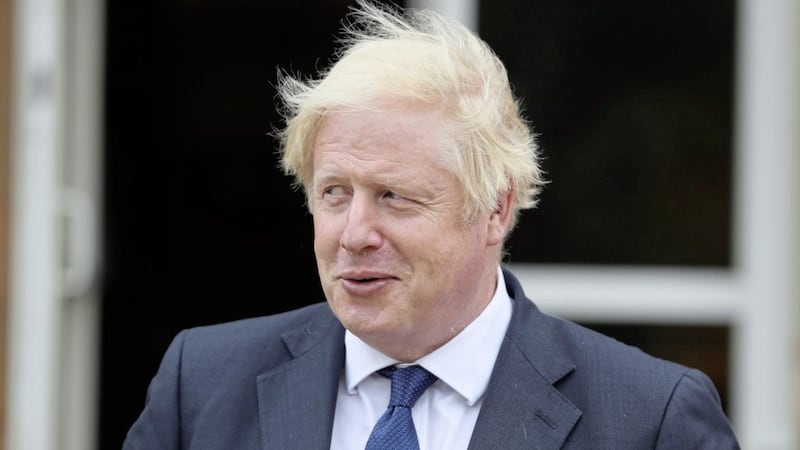NORTHERN. Ireland.
Two words which, for a long period of my life, I could not bring myself to utter together. Many people who call this place home would immediately empathise with that position, and some continue to refuse to do so.
Vocabulary is important to people. For nationalists, words spoken, or refrained from uttering, have provided a means of registering a personal protest at the plight reserved for a community left as the big losers from the partition fallout.
Others may have controlled the government, the police and main institutions within a state and society constructed exclusively in the image of one tradition, but they could not prevent us from refusing to afford legitimacy to the products of the great travesty that was the act of partition.
Northern Ireland may be a province, a (wee) country and even Ulster to many, but it remains none of the above for me and hundreds of thousands of others.
Partition created a car crash society north of the border, empowering a perpetually reactionary and myopic unionist political leadership.
Generosity was deemed neither necessary nor desirable as the numbers in the artificially constructed entity seemed so decisively rigged.
A state conceived of in violence was rarely at peace, as best understood as meaning more than simply the absence of war, even prior to the outbreak of the post-1969 conflict.
Last week, the British government announced that it would be setting up a 'Centenary Forum' and a 'Centenary Historical Advisory Panel' to work on devising a means of marking 100 years since Northern Ireland's foundation.
The British secretary of state for the north, Brandon Lewis, released a statement claiming this would be "a fantastic opportunity for people right across the UK to celebrate Northern Ireland and its integral place within our Union".
The painful truth for many unionists is that people in Britain have consistently demonstrated at best apathy and at times outright hostility to the notion that the north of Ireland continues to form any part of their kingdom.
In reality, this was a cynical last minute sop from Boris to the DUP to help them swallow the bitter pill that was the New Decade, New Approach deal.
That has not stopped Jim Allister from announcing his own proposals for marking the anniversary with special minted coins for school kids, extra days for flags to fly and a novel way of marking territory by claiming the sky through loyal flyovers.
The DUP are on record as calling for baby boxes to be provided for each child born in 2021 and public art and environment projects developed to mark the occasion.
These are not suggestions proposed from a position of strength and confidence and will be viewed widely as coat-trailing exercises.
The north has changed utterly. The post-Good Friday world has witnessed the rise of both a confident and assertive Irish nationalism and a burgeoning community of non-aligned Others, reducing unionism to a minority position across the state it demanded Britain carve out to prevent that nightmare from ever being realised.
Brexit has propelled the Irish unity campaign and the expansion of all-Ireland politics appears irreversible, with Sinn Féin an election away from leading a government in Dublin and its main rivals appearing more interested than at any time before in properly engaging in island-wide politics.
Even minor parties across the political spectrum - from People Before Profit to the Greens and Aontú - now orient on a north-south axis.
Those incapable of modifying the lens through which they view the world miss change that happens right in front of their noses and fail to react accordingly.
Unionism has been at Terence O'Neill's crossroads for half a century and there is no indication yet that its political leaders understand exactly what needs to happen in order to help ensure there can be a 125-year party.
It is deeply ironic, but nevertheless true, to state that Northern Ireland has to become a place very comfortable with its Irishness (as distinct from the northern flavour) if British sovereignty is to endure here for much longer.
Yet there is a challenge for nationalists and republicans that must be recognised. The inescapable logic of the Good Friday Agreement is that Northern Ireland, not the north nor Six Counties, has to be written into a credible unity vision for very pragmatic reasons.
Respecting the integrity of the three-stranded relationships will prove essential to persuading the growing bloc of Others in our society of the feasibility and attractiveness of unity whilst also providing a framework within which unionists can be accommodated, affording respect to their British and uniquely Northern Irish identity.
Whilst wary of anything that celebrates either the northern state or identity, it remains the case now that Thinking 32 must involve creating a space for those emotionally attached to Six.








